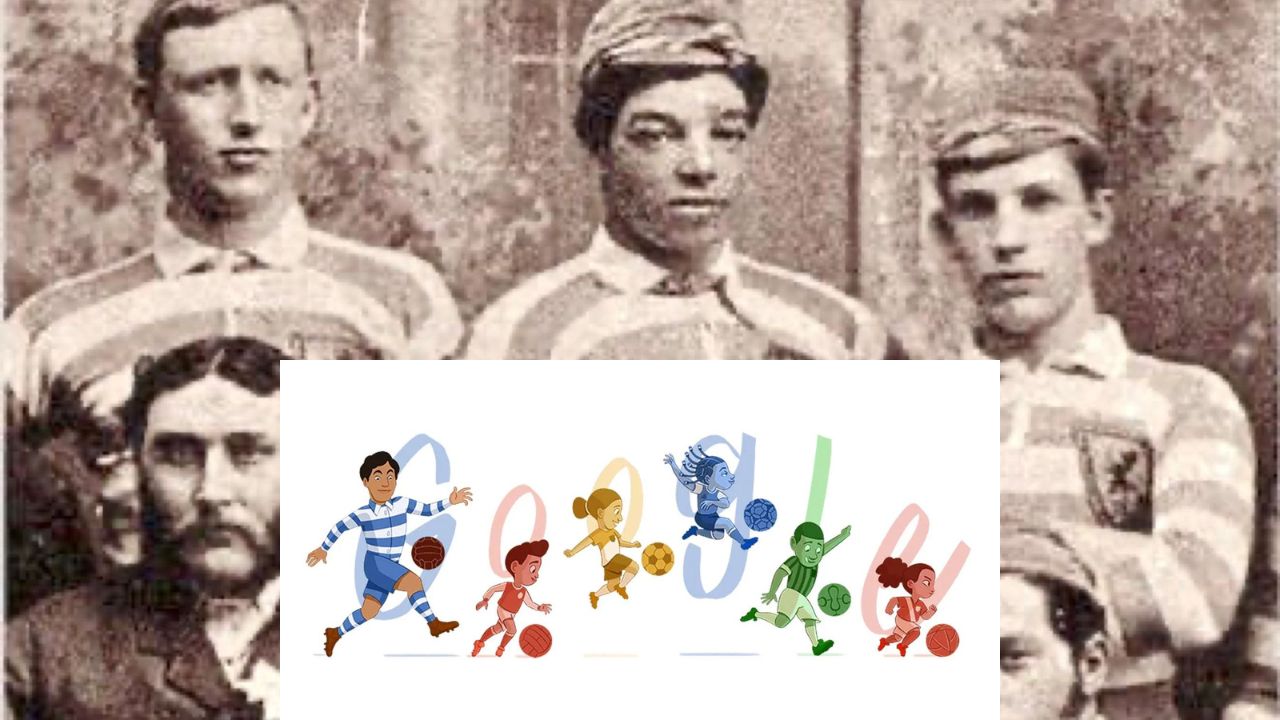A guest artist from London, Selom Sunu, is drawing a doodle to honour the life of Scottish football player Andrew Watson.
Watson is thought to be the first black footballer to play for a national team. He was the captain of the Scottish team and the first black manager in history.
On October 18, Watson played for the Scottish football team Queen’s Park in the first game at the New Hampden Park stadium. This is why he is remembered on this day.
Watson was born in 1856 in Georgetown, Guyana. He is thought to be the first black person to play association football at an international level.
His family was wealthy, and when he was young, they moved to Britain, where football was becoming more and more popular. Watson became interested in sports when he went to public schools in Yorkshire and Wimbledon.
Watson got his father’s money and was able to live on his own after his father died when he was 19 years old.

He went to the University of Glasgow to study math, engineering, and the natural sciences. But Watson, who was 21 at the time, wanted to do something else. Instead of finishing college, he started a wholesale warehouse business and played football on the side.
Watson got married twice: first to Jessie Nimmo Armour in 1877, and then to Eliza Kate Tyler in 1887, after she died. From each marriage, he had four children: Rupert, Agnes, Henry, and Phyllis.
Watson died in London on March 8, 1921, at the age of 64, from pneumonia. Eleven years before he died, he gave up football.
Today, his body is in the Richmond cemetery, where people can go to see his grave.
Andrew Watson’s career in football
Watson was a good football player for 14 years.
He started playing football with Maxwell FC in Glasgow. In 1874, he moved to Parkgrove and became their match secretary. This made him the first black person to run a football club. At Parkgrove, Watson played with Robert Walker, who was also black.
Watson played for Glasgow when they played Sheffield at Bramhall Lane in 1880. Right away, people saw how good he was at football, and he joined Queen’s Park, which was the best team in the UK at the time. During this time, he was a skilled player who played fullback.
Then, in 1881 and 1882, he was Queen’s Park’s secretary and also led the team to two straight Scottish Cup wins.
Watson’s achievements didn’t end there. When he moved to London and played for the Swifts in 1882, he was the first black person to play in the English Cup. Besides the Corinthians, he also played for the Pilgrims, Brentwood, and London Caledonians.
Watson won the Scottish Cup three times over the course of his career. He also won all three games he played against England. In Glasgow, at the Hampden Bowling club, where Scotland beat England for the third time, there is a mural of Watson to honour his achievements.
Even though Watson played football almost a hundred years ago, he still has an effect on the sport today. He is an inspiration for black players now and for those who will come after them.


